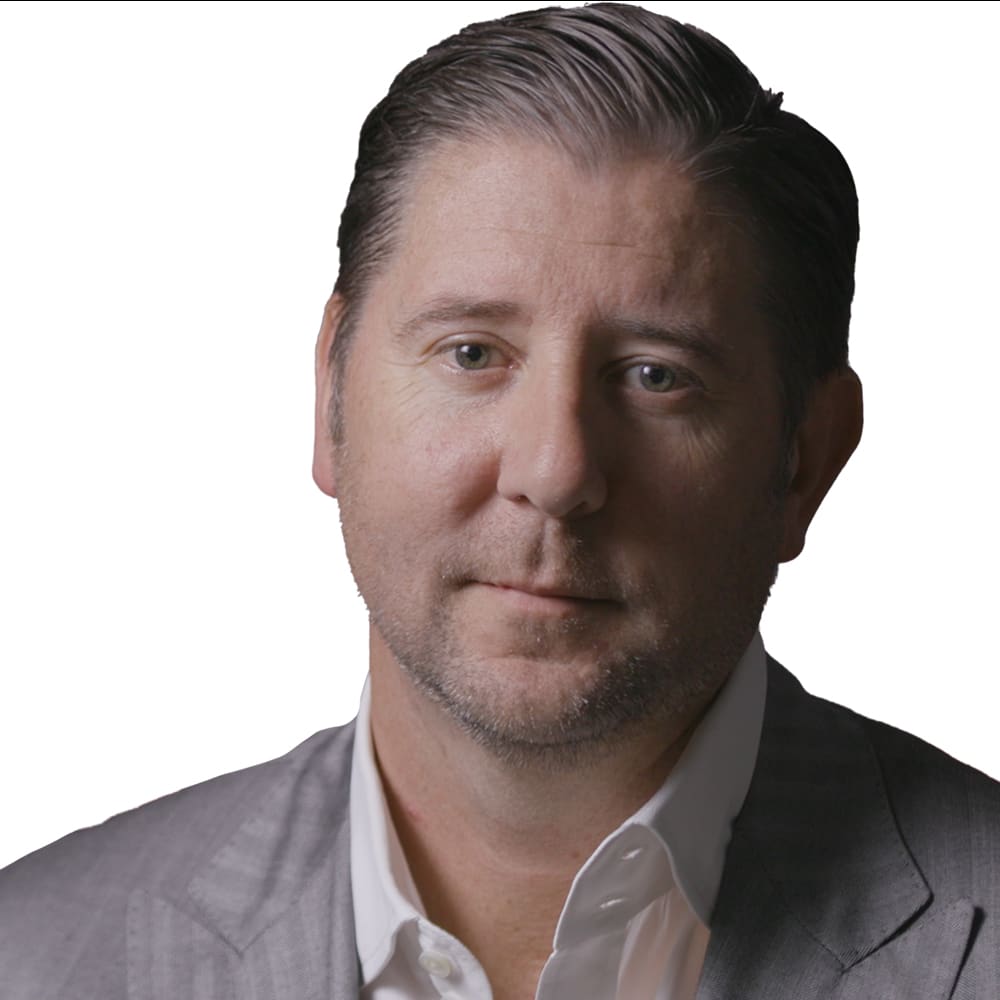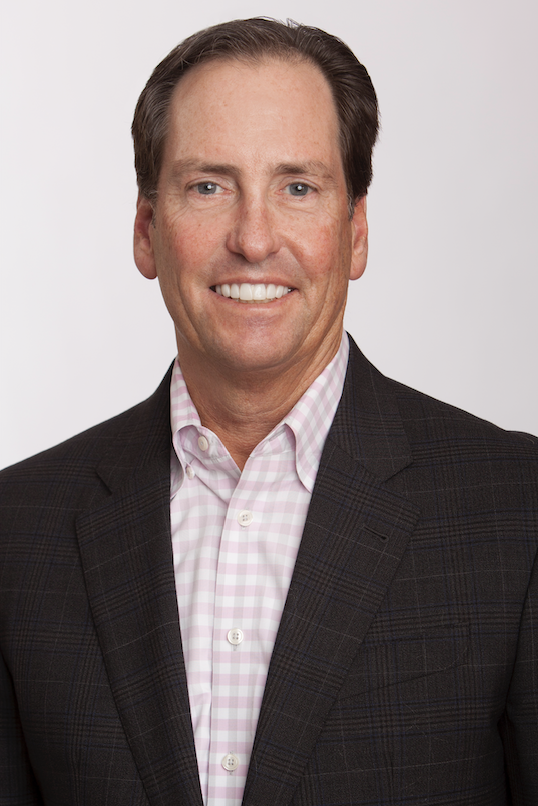Transcripts

Erik: Joining me now is Brent Johnson, Founder and Chief Investment Officer for Santiago Capital. Brent prepared a slide deck to accompany today's interview. I strongly encourage you to download it is it contains quite a few graphs and charts that we'll be referencing throughout the interview. Listeners, you'll find the download link in your research roundup email. If you don't have a research roundup email, just go to our homepage, macrovoices.com, click the red button that says, looking for the downloads just above Brent's picture. Brent, it's been way too long since we had you on the show. I think it's been over a year now. It's great to have you back. Let's talk about one of our favorite subjects the US dollar.
Brent: Yeah, it's great to be back good and it would be kind of funny if we didn't talk about the dollar here, especially with what's been going on this year. So I'm happy to be back and happy to talk to you.
Erik: Maybe we should start with a refresher for people who are not familiar with your Dollar Milkshake theory. A lot of people have been kind of confused by the US dollar. They thought that the debasement of the currency by the Federal Reserve printing so much money in stimulus and so forth, was going to cause the dollar to lose value. But it seems to strengthen when a lot of people thought it was going to go the opposite way. Give us a little bit of a refresher course on Dollar Milkshake theory and how you think about things and how we should be thinking about them.
Brent: Sure. The best way to think about the Dollar Milkshake theory, because I think there is some misconception about it is it's not just the dollar going higher. I mean, that's kind of the effect of the theory, but the theory is that we are going to enter a sovereign debt and a sovereign currency crisis. And the Dollar Milkshake theory is the framework via which I kind of see that process playing out. A couple years ago, when the dollar was falling post COVID, when they were doing all different kinds of stimulus and monetary support, a number of people said, well, the theory has been invalidated. Now, over the last year, as the dollar has risen, a number of people have said, well, it is validated. And to be honest, what I would say Erik, is neither of those is the case yet, because as of now, we have not really entered a sovereign debt or currency crisis. I still think one is coming. But as of now, I don't think you could either say it has worked, or it hasn't worked. As far as the theory itself, I think we're gonna find out over the next couple years, whether or not is valid or not. But as it is now, we've got a very strong dollar. And we have the potential for some volatility in the crisis, but as of yet, it has not yet really arrived.

Erik: Joining me now is Charlie McElligott, process and macro strategist at Nomura. Charlie has prepared a slide deck for anyone who's not familiar with Charlie's work. He's famous for his graphs and charts. So you're not going to want to miss that slide deck. Listeners, you'll find the download link in your research roundup email. If you don't have a research roundup email, just go to our homepage at macrovoices.com. Click the red button that says, looking for the downloads just above Charlie's picture. Charlie, it's great to have you back on the show before even diving into the slides, I want to just start at the really high level big picture. Seems like there was lots of really good reasons for the stock market to be selling off through the middle of June as it was, all of a sudden it changed direction. It's been rallying ever since and most of us don't get it. It seems like the macro data is just getting worse. So does that mean this was just a dead cat bounce and we hit the 100 day moving average and it's all about to roll over or is there some big bullish catalysts that I've missed? What's going on here?
Charlie: Yeah, so first of all, always a pleasure to speak with you. Thank you for having me back. It's remarkable how many people I talk to around the street, on the institutional side that say at first, I first discovered you on MacroVoices. So thank you and obviously your platform is just wildly successful. I think what happened over the course of the summer and I think last time I was on, we spoke about what a clear trend market this had been. And that's why managed futures CTA trend is the foreign OA champion of the year to date kind of strategy performance. It's not based upon the traditional kind of bond-stock correlation that so much of the kind of the modern investment asset allocation framework is and it works beautifully in times of tail type of an environment. And that trend dynamic over the course of the year, which was very much premised upon that inflation overshoot central banks forced to spastically tighten financial conditions theme was your big shorts and bonds, and then rates and in equities. And then on the long side, your long US dollar, right, as a central bank had to impulse tighten because they're behind the curve, they miscategorized inflation as transitory and it became something that's structurally persistent and then also to long commodities as your kind of inflation hedge.
In June, I would say is when that CPI shock, what was one of the most recent CPI shocks and other upside beat there. I think it saw the mentality from the market shift to, oh dear Lord, we don't have arms around this situation anymore. We do not know where this is going. High inflation tends to mean trending inflation. We've lost the ability to forecast this and where we're going to borrow a line from Back to the Future where we're going, there are no roads. The mentality shifted from that previous focus on inflation upside risk, now to growth downside risks which then kicked off a bunch of second order impact, and then that growth downside risk became this, this sudden corroboration with a lot of growth data as well as things that we mentioned last time we spoke, which were trends in the market that were telling you that markets were pricing increased probability of recession. You know, this immediately created something that looked like the equivalent to a dovish fed pivot. And you had this impulse easing in financial conditions. And I can go on from there as to those second order impacts what that then created and saw this kind of counterintuitive rally in equities that seemingly, as you said, from a top-down perspective had this perfect next leg down kind of story to go that then went completely awry over the last month and a half.

Erik: Joining me now is Charlie McElligott, process and macro strategist at Nomura. Charlie has prepared a slide deck for anyone who's not familiar with Charlie's work. He's famous for his graphs and charts. So you're not going to want to miss that slide deck. Listeners, you'll find the download link in your research roundup email. If you don't have a research roundup email, just go to our homepage at macrovoices.com. Click the red button that says, looking for the downloads just above Charlie's picture. Charlie, it's great to have you back on the show before even diving into the slides, I want to just start at the really high level big picture. Seems like there was lots of really good reasons for the stock market to be selling off through the middle of June as it was, all of a sudden it changed direction. It's been rallying ever since and most of us don't get it. It seems like the macro data is just getting worse. So does that mean this was just a dead cat bounce and we hit the 100 day moving average and it's all about to roll over or is there some big bullish catalysts that I've missed? What's going on here?
Charlie: Yeah, so first of all, always a pleasure to speak with you. Thank you for having me back. It's remarkable how many people I talk to around the street, on the institutional side that say at first, I first discovered you on MacroVoices. So thank you and obviously your platform is just wildly successful. I think what happened over the course of the summer and I think last time I was on, we spoke about what a clear trend market this had been. And that's why managed futures CTA trend is the foreign OA champion of the year to date kind of strategy performance. It's not based upon the traditional kind of bond-stock correlation that so much of the kind of the modern investment asset allocation framework is and it works beautifully in times of tail type of an environment. And that trend dynamic over the course of the year, which was very much premised upon that inflation overshoot central banks forced to spastically tighten financial conditions theme was your big shorts and bonds, and then rates and in equities. And then on the long side, your long US dollar, right, as a central bank had to impulse tighten because they're behind the curve, they miscategorized inflation as transitory and it became something that's structurally persistent and then also to long commodities as your kind of inflation hedge.
In June, I would say is when that CPI shock, what was one of the most recent CPI shocks and other upside beat there. I think it saw the mentality from the market shift to, oh dear Lord, we don't have arms around this situation anymore. We do not know where this is going. High inflation tends to mean trending inflation. We've lost the ability to forecast this and where we're going to borrow a line from Back to the Future where we're going, there are no roads. The mentality shifted from that previous focus on inflation upside risk, now to growth downside risks which then kicked off a bunch of second order impact, and then that growth downside risk became this, this sudden corroboration with a lot of growth data as well as things that we mentioned last time we spoke, which were trends in the market that were telling you that markets were pricing increased probability of recession. You know, this immediately created something that looked like the equivalent to a dovish fed pivot. And you had this impulse easing in financial conditions. And I can go on from there as to those second order impacts what that then created and saw this kind of counterintuitive rally in equities that seemingly, as you said, from a top-down perspective had this perfect next leg down kind of story to go that then went completely awry over the last month and a half.

Erik: Joining me now is David Hay, Chief Co-Investment Officer for Evergreen Gavekal and the founder of the Haymaker Social Media site. David has prepared a slide deck to accompany this week's interview. Listeners, you'll find the download link in your research roundup email Now if you don't have a research roundup email, just go to our homepage MacroVoices.com look for the red button that says looking for the downloads. David, it's great to have you back! I want to credit you for being the guy who told our listeners first about what you called Greenflation, the idea that, hey, as much as the climate agenda, and so forth, these are all noble goals, things we got to do to make the planet a better place. It doesn't come for free and you have to consider that these policy initiatives mean that it will introduce inflation into the economy. Well boy, you sure got that one right. So congratulations on that call. I'd like to ask you for an update. You know, you definitely called this one. How has this gone? I wasn't expecting President Biden to essentially say the same thing when he told everybody it's not a recession, it's a transition. And it's a cost of getting to green energy. How has this played out compared to what you expected and what do you see next for this green inflation story?
David: Well, first of all Erik, it's great to be back on. We had a really lively discussion last time. I went back and I listened to it. And you and I made some pretty good calls at that point. In fact, both of us were very skeptical that energy prices would stay suppressed, particularly as we get deeper and deeper into what I would call the Great Green Energy Transition to use that transition word again. And it's pretty remarkable, really what's happened. I mean, it was, if you've remember that one of the big focus points in that discussion, which I think was October 28 of last year was what was already a serious energy crisis in Europe. Oil and gas prices, electricity prices were exploding already at that point. But since we talked, actually, electricity prices in France are up another 500% and in Germany, they're up 300%. I just don't think Americans realize, have any clue as to how bad it is over there. And a lot of this started way before Putin put on his Blitzl. Way before those tanks ever crossed the Ukrainian border. So this is a problem that's been festering for a long time.

Erik: Joining me now is Adam Rozencwajg. Managing partner for Goehring & Rozencwajg Associates. Adam wrote a terrific research piece back in May that really captured my attention. Listeners, you'll find a download link in your research roundup email for that piece, I strongly encourage you to read it as it really is going to provide a lot of excellent background for today's interview. Adam, I want to start with the big picture here. I think we have a dual crisis facing the world both an energy crisis, which I've been paying a huge amount of attention to. I don't know as much about the agriculture and food crisis and the fertilizer issues. I know that your firm has done a lot of research on that. But the feedback I get consistently from everybody is look Erik, these are just, you know, manifestations of the war between Russia and Ukraine. As soon as that blows over, it'll all be done with. That's not what your research reveals is it? Tell us the backstory on this. How do we get to a point where all the sudden the world seems to be facing energy and food crises?
Adam: Yeah, well first of all, thanks for having me this afternoon. I completely agree! This is this is not a Russia and Ukraine crisis. Although the situation there is certainly making things more complicated and making things tighter. But we first wrote on the verge of an energy crisis back in the summer of 2020. And you'll recall that that oil prices had been negative in April 2020. You know minus $47 a barrel, and they were still bouncing along, you know, very decade low levels. We had shut in wells all across the country. And so in a lot of ways, it was a strange time to write an essay called on the verge of an energy crisis. But what we saw, and what we continue to see is a market that was slipping into deficit, and that deficit was getting worse and worse and worse. So fast forward, and we can talk about the reasons why, but fast forward to the beginning of 2022. And when Putin invaded the Ukraine, so many investors and market watchers really were caught off guard, and they said, we just really couldn't have seen this coming. And I think nothing could be further from the truth. You know, this was a train wreck happening in slow motion. For two years now, inventories around the world have been declining, which means that demand has been running ahead of supply. Energy prices have been moving higher, energy stocks have shown leadership. And yet, we've seen no capital response, no money has been put back into the ground in any of the extractive industries really. And that's just been ratcheting this market tighter and tighter and tighter. And now it has reached its boiling point.
So a lot of people, like I said, consider this to be completely out of left field. But the fundamentals here have been setting up for a long, long time. We cut spending on oil and gas, into the pandemic, we cut it 75-80%. We're still substantially below the 2019 spending levels, which in and of themselves were not enough to maintain flat production. All of the growth in the last decade has come from the shales. You know, there's been no growth in the rest of the non OPEC world. And there's really been no net growth in the OPEC world either. So all the supply growth in the last decade has come from the shells, we have blindly believed that those shales can grow infinitely. And I understand why, they were fantastic new sources of supply, bringing on the shales in the 2010s was the most important development in the oil business since the super giant fields of guar were brought online in Saudi Arabia 70 years ago. But even the biggest oil field is not infinite. And we've reached the point now where those fields are showing their age, they're beginning to exhibit depletion. And we just have neglected this industry so terribly for almost 10 years now, that that we really just don't have anything in the way of capacity ready to backfill depletion in the shales. So that was true in 2020-2021, the market was just getting tighter and tighter and tighter and tighter. And then you have a black swan event, something that no one was able to predict. And now we've just tightened the market dramatically more, but this is not a Russia story. And these problems will persist for years to come now.
MACRO VOICES is presented for informational and entertainment purposes only. The information presented in MACRO VOICES should NOT be construed as investment advice. Always consult a licensed investment professional before making important investment decisions. The opinions expressed on MACRO VOICES are those of the participants. MACRO VOICES, its producers, and hosts Erik Townsend and Patrick Ceresna shall NOT be liable for losses resulting from investment decisions based on information or viewpoints presented on MACRO VOICES.
